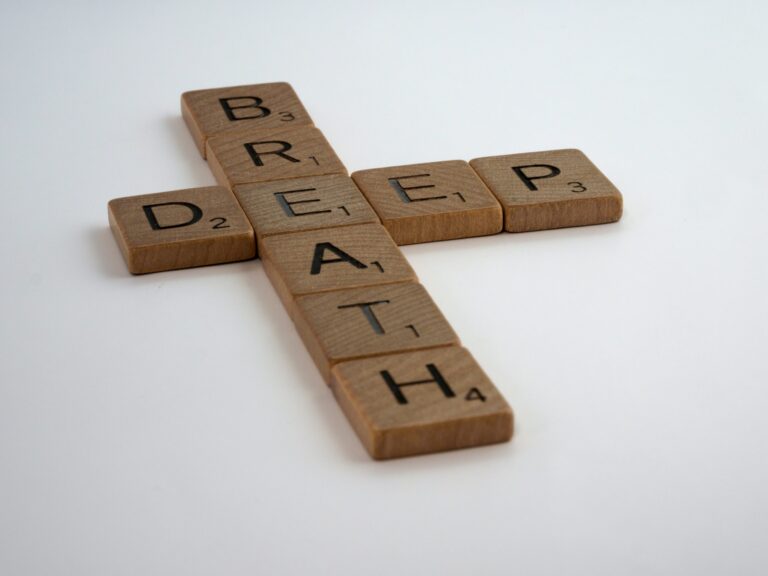Strategies for Managing Stress and Preventing Anxiety in the Fast-Paced Environment of New York

In the hustle of New York City, we find that mindfulness practices like meditation and mindful eating bring moments of calm. Regular exercise, even desk stretches, and outdoor walks aid in stress relief. Balanced meals and meal planning keep energy up. Time management with task prioritization and scheduling boost productivity. Social support networks offer belonging and empathy. Self-care routines and setting boundaries are vital. Remember, in this vibrant city, managing stress is key to thriving.
Mindfulness Practices
Incorporating mindfulness practices into our daily routines can significantly help in managing stress and preventing anxiety. Meditation techniques are powerful tools for stress reduction, allowing us to find a moment of peace amidst the chaos of our busy lives. Taking even just a few minutes each day to sit quietly, focus on our breath, and let go of racing thoughts can make a world of difference. Mindful eating is another essential practice that brings calmness to our days. By savoring each bite, paying attention to flavors and textures, we not only enjoy our meals more but also reduce stress by being present in the moment.
Practicing mindfulness doesn’t require hours of dedication; it’s about integrating small moments of awareness into our day. Whether it’s taking a mindful walk, pausing to appreciate nature, or simply breathing deeply before a meeting, these practices can bring a sense of peace and clarity to our hectic lives. By prioritizing these moments of mindfulness, we can cultivate a greater sense of calm and resilience in the face of stress and anxiety.
Exercise and Movement
Engaging in regular physical activity plays a crucial role in managing stress and preventing anxiety, offering a holistic approach to overall well-being. In the fast-paced environment of New York, incorporating exercise and movement into our daily routines can significantly impact our mental health. Desk stretches are a simple yet effective way to release tension that builds up from long hours of sitting. Taking short breaks to stretch our bodies can improve circulation, reduce muscle stiffness, and help clear our minds.
Additionally, outdoor walks provide a refreshing change of scenery and an opportunity to connect with nature amidst the hustle and bustle of the city. Walking not only boosts our physical health but also allows for moments of mindfulness and relaxation. Whether it’s a brisk walk during lunchtime or a leisurely stroll in the park after work, being outdoors and moving our bodies can rejuvenate our spirits and alleviate stress.
Healthy Eating Habits
Nourishing our bodies with balanced meals rich in nutrients is essential for managing stress and promoting mental well-being, especially in the bustling city of New York. Nutritional balance plays a significant role in how we feel each day, affecting our energy levels and overall mood. When considering healthy eating habits, meal planning becomes a cornerstone for success. Planning meals in advance not only saves time but also ensures that we are consuming a variety of foods that provide the necessary vitamins and minerals our bodies need to function optimally.
In the fast-paced environment of New York, where grabbing a quick bite on the go is often the norm, taking the time to plan nutritious meals may seem challenging. However, investing in meal planning can lead to improved focus, increased productivity, and better stress management. By making conscious choices to prioritize our nutritional needs, we equip ourselves with the tools to navigate the demands of city life with resilience and vitality. Let’s embrace the power of healthy eating habits to support our well-being and combat the effects of stress in this dynamic urban landscape.
Time Management Techniques
Let’s explore effective strategies for managing our time wisely amidst the fast-paced lifestyle of New York. Task prioritization and scheduling are key components in ensuring productivity and reducing stress. By identifying the most important tasks and allocating time to complete them, we can make significant progress each day. Procrastination is a common challenge, but breaking tasks into smaller, more manageable steps can help overcome this hurdle. Time blocking is another useful technique where specific time slots are dedicated to different activities, ensuring focus and efficiency.
Creating a daily or weekly schedule can provide a clear outline of our commitments and deadlines, helping us stay organized and on track. Setting realistic goals and deadlines can motivate us to work towards achieving them. Remember to factor in time for breaks and relaxation to prevent burnout. By implementing these time management techniques, we can navigate the demands of New York’s fast-paced environment with greater ease and effectiveness.
Social Support Networks
Social support networks play a crucial role in managing stress and preventing anxiety, providing a valuable source of comfort and understanding in times of need. Community involvement and peer support can create a sense of belonging and security, reducing feelings of isolation that often accompany stressful situations. Emotional connections forged through group therapy or support groups offer a safe space to express concerns, share experiences, and receive empathy from others facing similar challenges. These networks not only provide emotional support but also practical assistance, such as sharing resources or offering guidance on coping strategies. By actively participating in these support systems, individuals can develop a sense of resilience and empowerment, knowing they are not alone in their struggles. Nurturing these connections and being open to receiving help can lead to a more balanced and healthier approach to managing stress in the fast-paced environment of New York.
Relaxation and Breathing Exercises
Amidst the hustle and bustle of New York City, finding moments for relaxation and practicing breathing exercises can be transformative in managing stress and promoting overall well-being. Deep breathing techniques are a simple yet powerful way to calm the mind and body. Take a few minutes each day to focus on deep, slow breaths, filling your lungs completely and exhaling slowly. This practice can help reduce anxiety and increase feelings of relaxation.
Progressive relaxation is another effective method to release tension in the body. Start by tensing and then relaxing each muscle group, working your way from your toes to your head. This exercise can help you become more aware of where you hold stress in your body and teach you how to let go of that tension.
In the fast-paced environment of New York, incorporating these relaxation and breathing exercises into your daily routine can make a significant difference in how you manage stress. Remember, taking care of your well-being is essential for navigating the challenges of city life with resilience and grace.
Setting Boundaries
In our daily lives, establishing clear boundaries is crucial for maintaining mental and emotional well-being. Setting boundaries involves a delicate balance of boundary negotiation and self-care practices. It’s essential to understand that prioritizing our well-being is not selfish but necessary for overall health. When we set boundaries, we create a framework for a healthier work-life balance, allowing us to be more present and effective in all areas of our lives.
Assertiveness training can be a valuable tool in setting and maintaining boundaries. Learning how to communicate our needs and limits respectfully yet firmly is key to establishing healthy boundaries. It’s okay to say no when we feel overwhelmed or stretched too thin. By doing so, we honor our well-being and preserve our mental and emotional reserves.
Seeking Professional Help
Seeking professional help can greatly aid in managing stress and preventing anxiety by providing valuable guidance and support tailored to individual needs. When considering therapy options, it’s essential to find a licensed therapist who resonates with you and specializes in the areas you wish to address. Therapy offers a safe space to explore your emotions, develop coping mechanisms, and learn effective self-care strategies.
For some individuals, medication prescribed by a psychiatrist may also be beneficial in conjunction with therapy. It’s crucial to consult a qualified healthcare provider to discuss the potential benefits and side effects of medication, ensuring it aligns with your overall wellness plan.



